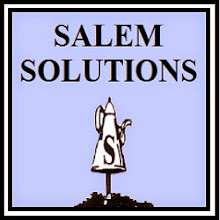Compliments of Yahoo! HotJobs
Think you can get away with leaving coffee grounds in the sink, or taking that handicapped spot? Maybe. But according to a new study, even if coworkers don't say anything about such rude behaviors, they are likely to harbor resentment about them.
Through an informal online survey with Yahoo! and Survey Monkey, researchers at the Civility Initiative at The Johns Hopkins University and the Jacob France Institute of the University of Baltimore identified workplace behaviors that irritate people the most.
More than 600 workers and college students in the Baltimore area ranked bad behavior on a scale ranging from 1 (not offensive) to 5 (most offensive).
The 'Terrible 10' List
1. Based on those rankings, the "Terrible 10" behaviors are (from most to least offensive):
2. Employment discrimination.
3. Erratic/aggressive driving that endangers others.
4. Taking credit for someone else's work.
5. Treating service providers as inferiors.
6. Mocking race, gender, age, disabilities, sexual orientation or religion.
7. People who behave aggressively or who bully others.
8. Littering.
9. Misusing handicapped privileges.
10. Smoking in nonsmoking places or smoking in front of nonsmokers without asking.
11. Using cellphones or text-messaging in mid-conversation or during an appointment or meeting.
12. Some actions, such as discrimination, may be illegal; but even more subtle behaviors, such as making a sexist joke or not asking before lighting a cigarette, still add to the stress of the daily grind and can actually lower productivity.
"The research suggests that people are bothered more by the transgressions of coworkers and strangers than by those of family and friends," says P.M. Forni, director of the Civility Initiative at Johns Hopkins.
Civility Helps the Bottom Line
Forni added that, although the survey did not explore the prevalence of these behaviors, years of anecdotal evidence suggest that taking credit for another's work, and texting or using a cellphone during meetings are widespread annoyances.
"These behaviors have a big impact on the quality of life for coworkers and on the bottom line as well," Forni says. "If we had better relationship skills, it would diminish the amount of stress in the workplace and eliminate a lot of misery."
The survey is backed up by increasing evidence that shows workplace rudeness taking a toll on both employees and on a company's bottom line. A previous study of rudeness in the workplace by the Jacob France Institute found that 67 percent of respondents feel society is ruder than in the past, and 83 percent stated that it was "very important" for them to work in a civil workplace environment.
Dealing with Rude Coworkers
In his book, The Civility Solution: What to Do When People Are Rude, Forni suggests using the S.I.R. (state, inform and request) approach to deal with incivility. "First, you state the problem to yourself, so you understand that it really is a problem," Forni says. "Next you inform the person of the bad behavior. Give them a way out and the benefit of the doubt by saying, 'Maybe you didn't realize you did x, but ?.'"
Finally, Forni suggests making a request of the perpetrator, politely of course. "Say something like, 'I hope you can refrain from doing this in the future.' If you present your grievance in a way that's nonconfrontational, you're likely to get positive results."
Thursday, February 17, 2011
The 'Terrible 10' Behaviors in the Workplace
Subscribe to:
Post Comments (Atom)

No comments:
Post a Comment